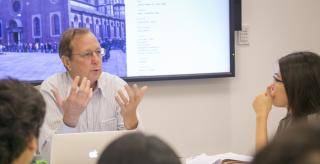A Spring Semester Like No Other: Duke Law Responds to COVID-19
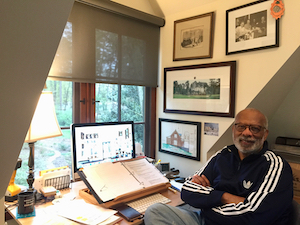

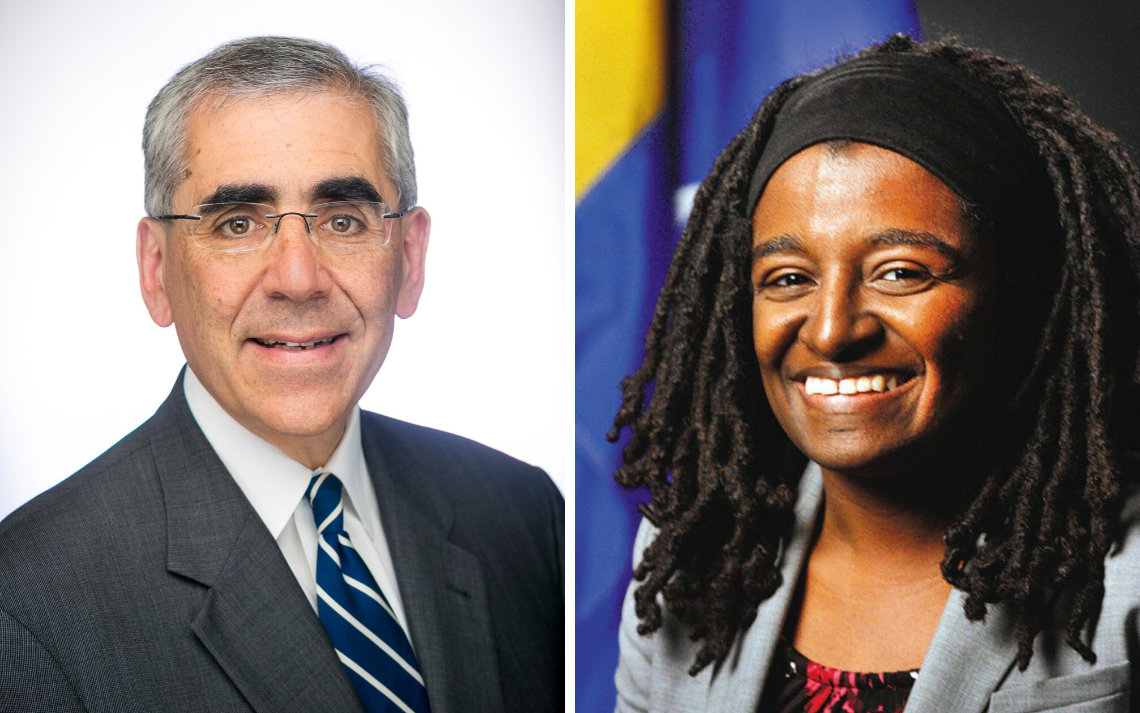
Durham Mayor Pro Tempore Jillian Johnson and Duke University Vice President for Public Affairs and Government Relations Michael Schoenfeld recently came together for a virtual “Coronavirus Conversations” to discuss how the city and university have collaborated and continue to partner in the response to the COVID-19 pandemic.
Coronavirus Conversations are weekly events organized by the Duke Initiative for Science & Society to explore the social, ethical, and policy issues that arise as the world responds to the crisis.
The following are excerpts from the conversation:
Jillian Johnson, Durham Mayor Pro Tempore
“We have been for the last couple of months really building the plane as we fly it, trying to figure out what the best actions are to protect our residents. Our primary goal is the health and safety of the people that live in Durham, but also trying to minimize disruptions as much as possible.
“We’ve had a close collaboration with our County Public Health Department and with Duke. That collaboration has been really helpful and rewarding for us in terms of what we’re able to do in the community.”
Michael Schoenfeld, Vice President for Public Affairs and Government Relations
“As a research university, a major employer, and the principle health care provider for Durham, this didn’t just show up. We’ve actually been engaged with the city, county, and state since the end of December when we got the first notice of the outbreak in China.
“A number of people at Duke have been working on this for quite a while in a number of ways, with Durham County Public Health, the city, the state, RDU airport and others. This really has been a very widespread and coordinated effort.”
Jillian Johnson:
“Based on the information we’re getting from the Duke Data Analysis Team that Dr. Schoenfeld mentioned, we have seen our curve flattening. Our hospitals have not become overwhelmed. We haven’t exhausted the capacity of our health care system, which is always the biggest concern in terms of dealing with the potential mortality of this virus. If everyone has access to high quality health care like you would get at Duke Hospital, then we know the mortality rate is going to be greatly decreased.
“We have of course seen a number of deaths in the community, which is tragic. Our hearts go out to the families who are sick and suffering, but overall our numbers have not been as bad as we predicted they could have been without the intense interventions we made early on.”
Michael Schoenfeld:
“I want to credit Mayor Schewel, the City Council and the County Commission for really stepping up and stepping in at a time when it was absolutely necessary and when there were greater challenges at the state level than were known. They put Durham on a very good path from our perspective as a health care provider and employer.
“It’s too early to take the foot off the gas. Nonetheless we’re in a much better position than we expected to be three or four weeks ago and certainly better than we would have been had some of those strong measures not been put into place.”
Michael Schoenfeld:
“This is a story that is still being written. Certainly for Duke and any institution, we have never confronted a situation like this in which every part of what we do, health care, education, delivering services, investments, is either frozen or shocked all at once at the same time in every part of our activities.
“I know the impacts of this on local and state government will be dire. We’re all going to go through a period of retrenchment, but also work together to protect the most vulnerable in the Duke community, Durham community and beyond. We’ll be working on what will be essentially a restoration. Duke is absolutely committed to being a partner with the city and with the community.“
Jillian Johnson:
“None of us have governed through this kind of economic disruption before. It’s really revealed the fragility of the entire system. We talk about so many Americans not being able to cover a $400 emergency or how so many are one paycheck from poverty. We’ve found that our entire economic system is just one paycheck from poverty.”
Michael Schoenfeld:
“We’re looking at a range of options. Those options could be business as usual on one end, to not at all usual on the other. It’s impossible for us to predict today what things are going to look like a month from now.
“We hope to have some clarity by the middle of June. When the stay-at home orders get lifted on May 15, it does not mean everyone come to the office on May 16.”
Jillian Johnson:
“We’re listening to experts. We’re getting all the guidance we can. Here in the city we believe in science and we believe in experts. We listen to doctors. Our residents can trust that we’re using the best possible evidence to make the best possible decisions with regard to restoring economic activity as quickly as we can, in a safe way.”
Michael Schoenfeld:
“We shouldn’t underestimate the value and power of innovation in what this recovery will look like. I’ll give you two examples.
“On March 11, with the exception of Duke’s online master’s programs in business and engineering and a couple other small boutique programs, we taught a grand total of zero online classes. In a very short time, we transitioned 6500 courses taught by 1500 faculty.
“For the month of January 107 people used our telehealth service. On April 23, 7,000 people used our telehealth service. That is going to be a radical and dramatic change in the way people get healthcare and access health care. It will have long-term applications well beyond when we’re done with social distancing.”
Jillian Johnson:
Regarding broadband and access to connected devices, “There is a huge concern that this situation will exacerbate existing inequalities in education. We know kids of color and lower income kids have lower access to this sort of technology and they may fall further behind their white peers.
“But I feel there is a real opportunity here. These needs have always existed, but they are being elevated and brought to the forefront by the pandemic.”
Jillian Johnson is Mayor Pro Tempore of Durham, NC. Johnson was appointed to the position in 2017 and re-elected to council in 2019. She is a long-time community organizer and activist, and a mother of two. Johnson earned her B.A in Public Policy at Duke in 2003.
Michael J. Schoenfeld is Vice President, Public Affairs and Government Relations at Duke. He is also a visiting professor of the practice at the Sanford School of Public Policy, where he teaches a course on media and politics. Schoenfeld is graduated from Duke in 1984 and went to receive a master’s degree in public policy from Stony Brook University in 1986.
To accommodate student needs for additional learning opportunities during the COVID-19 pandemic, Duke officials have overhauled the two Summer Sessions to double the number of course offerings and make them more affordable, Provost Sally Kornbluth and Executive Vice Provost Jennifer Francis announced Tuesday.
In an email message to Duke students, Kornbluth and Francis said that faculty members have stepped up to provide expanded course offerings during both sessions. Summer Session 1 course offerings increased from 60 last year to more than 150. They said they expected stronger demand for summer sessions classes because of the effects of the pandemic on the availability of jobs and internships.
The expanded range of courses opens additional opportunities for learning not usually available during summer sessions. In addition to a range of courses from art history to physics, Kornbluth and Francis said several classes will “address pandemic-related topics, including Macroeconomics of COVID-19; Epidemics in the Age of Interdependence; Educational Impacts of COVID-19; Visualizing the COVID-19 Pandemic; and Disease through the Ages.”
“We expect this will provide even more opportunities for students to both meet degree requirements and expand your educational horizons with some of Duke’s most compelling teachers,” they said.
In addition, Duke officials have lowered rates for online summer classes to $2,500 for a non-lab course and $3,200 for an extended recitation/lab course. Financial aid is available for summer session courses.
Current students now have an exclusive window to register for Duke Summer Session I courses through Tuesday, April 28. After that, any open spaces will be made available to the general public.
For more information, visit the summer session website or e-mail Kim Price at kprice@duke.edu.

Will Duke open in the fall? And what will the university look like ten years from now? Those are some of the questions that will be addressed by two new interdisciplinary strategy teams that will advise the Duke’s leadership on navigating through the next phase of the COVID-19 pandemic, President Vincent E. Price announced Tuesday.
“The Duke community has responded to this crisis in an extraordinary way, with creativity, commitment and courage,” Price said. “Now as we move from emergency management to recovery, the fact is that we simply don’t know when we will be able to reopen, or in what form. Even with that uncertainty, it is also clear that when we do get back to business, it will not be business as usual.”
Price added that the university’s leadership team has been meeting daily to both review current issues and begin planning for a range of academic, operational and financial options that may have to be implemented depending on local and national conditions.
The two new strategy groups – Team 2021 and Team 2030 – will devise a structure for addressing the shorter-term issues facing the university as it prepares for the traditional start of the new academic year in August, as well as longer-term challenges and opportunities that come about as a result of COVID-19. Both teams will consult and coordinate with the President’s Cabinet, the Academic Council, standing university bodies like the Academic Programs Committee and the University Priorities Committee, faculty, staff and outside experts.
Team 2021 is charged with coordinating and synthesizing recommendations for essential changes in Duke’s academic programs and other activities that will be necessary to maintain core academic and research excellence in Fiscal Year 2020-21. It will be chaired by Executive Vice Provost Jennifer Francis and Vice President for Administration Kyle Cavanaugh and has a coordinating committee made up of leaders from key Duke academic, program and support areas.
The team will be responsible for developing a range of options for modifying practices, procedures and personnel under scenarios ranging from a complete return of students, faculty and staff with appropriate safety measures, to a delayed or staggered return, to a continued shutdown of all campus activity.
“I have specifically asked Team 2021 to recognize and seek to mitigate adverse impacts on low-income students, engage the faculty to the greatest extent possible and align with Duke’s overarching strategic framework, Toward our Second Century,” Price said, “as well as identify modifications that could be sustained or refined in the future.” In a nod towards current realities, Team 2021 will also assume that, under any scenario, a majority of Duke’s international students may be unable to return campus in the near future. The team will make a preliminary report by June 1 and deliver final recommendations by August 30.
Team 2030, meanwhile, will focus on identifying and recommending long-term strategic opportunities for Duke. “We fully expect that the impact of this crisis will be broad and deep, not just for Duke, but indeed for all of higher education,” Price said. “Thus, we need to ask – and answer – the question, what sort of institution do we wish to be?”
Provost Sally Kornbluth will chair Team 2030, whose coordinating committee will include the deans of Duke’s 10 schools, along with Kerry Haynie, Professor of Political Science and current chair of the Academic Council, Chancellor for Health Affairs Dr. A. Eugene Washington, and Executive Vice President Tallman Trask III.
“We will need to navigate unprecedented financial challenges thoughtfully and with firm resolve, both to secure for the future the resources needed to carry out our core academic, research and health care missions and to capitalize on Duke’s historic agility and innovative spirit to secure a true leadership role in defining higher education for the 21st century,” added Price
Price has directed Team 2030 to focus on identifying central areas of activity for Duke that warrant high priority for financial and other resources, those that might be ended or redirected, and novel areas of activity that stand to bring highest distinction in line with the university’s missions and values.
Like Team 2021, Team 2030’s recommendations will be aligned with the university’s strategic framework, will assume that resources will be severely restricted, and will be grounded in a recognition of the centrality of Duke’s faculty to the academic mission, ongoing commitments to diversity and inclusion, and an increased need for student financial aid.
Team 2030 will provide a preliminary update to Price by August 30 and will deliver a final report by December 31.

Like thousands of Duke students, Senior Olivia Pennoyer’s life changed dramatically in recent weeks because of the COVID-19 pandemic. But the experience of virtual classes, beginning with “Economics of the Public Sector,” taught by the Sanford School’s Steve Sexton, gave Pennoyer an idea. Pennoyer reached out to another former professor, Sanford’s Christina Gibson-Davis, and suggested an online series.
The result is the new virtual discussion series “COVID-19: Policy Perspectives,” which launched on April 8, drawing a crowd of about 100 viewers. The series’ second and final event takes place April 15. (See the full discussion here.)
Moderated by Gibson-Davis, the program is cosponsored by the Sanford School, the Samuel DuBois Cook Center on Social Equity and Polis: Center for Politics.
The series kicked off April 8 with a two-part panel discussion. Mac McCorkle and Doug Brook discussed politics, budgetary issues and policy failures, and Sandy Darity and Allan Freyer highlighted policy responses, social justice issues and the role of nonprofit groups.
Brook began by asking of the United States’ COVID-19 policy response: “Is it working, and how should it be working?” He described the Pandemic and All Hazards Preparedness Act of 2006, which was intended to help prepare the country for public health emergencies. He also highlighted the Trump Administration’s National Biodefense Strategy from 2018, which outlined objectives for combating substantial biological threats.
As a self-professed “budget guy,” Brook zeroed in on resource questions: “I always look to see, did we back up our policy with resources, because our conceit in the budget world is if you don’t have resources put against policy, you haven’t really made policy.”
His conclusion: while the U.S. government has examined pandemics’ potential health impacts, government leaders have not adequately assessed economic impacts.
McCorkle discussed the pandemic’s impact on presidential politics, highlighting the “rally around the flag” effect that boosted President Trump several weeks ago, and the decline in support more recently. He suggested that if Trump cannot tout a strong economy later this year, “he could have a very, very hard time” facing re-election. He also wondered how other incumbent elected officials—for example, governors—might fare. Will they be blamed for COVID-19’s impact, or will they earn credit for helping to steer their state through it?
McCorkle also asked what role the federal government should play in a national crisis.
“[There has been a] lost opportunity of using federalism in a creative way—for the federal government to have set some national minimums,” McCorkle said. “We still have nine states that still don’t have full state stay-at-home orders.”
Sandy Darity framed his presentation with the question: “Have the demands of the current health and macroeconomic crisis shunted all other initiatives aside, including most profoundly a social justice agenda?” He emphasized that “the COVID-19 crisis reinforces the importance of the pursuit and establishment of a social justice agenda; in fact, it reinforces the urgency of such measures being taken.”
Darity also discussed a policy idea for which he has earned national renown: the case for reparations for black Americans.
"The U.S. has the capacity to pay for anything it wants to pay for,” Darity said. “Overnight, we generated $2.3 trillion. It costs $10 trillion to close the black wealth gap. If done over the course of 10 years, it’s clearly financially manageable."
Darity also said Americans could cope more effectively with the COVID-19 crisis if the nation adopted national health care and a federal jobs guarantee.
Allan Freyer, who also serves as Director of Workers' Rights at the North Carolina Justice Center, highlighted his organization’s work with North Carolina Governor Roy Cooper and other states and national organizations to provide economic support to those who need it. He warned against the country returning to normalcy too quickly: "The fastest way to kill the economy is to bring people back on the shop floor and hope it’s all going to work out."
Freyer also questioned systems and laws hindering the distribution of economic support.
"We’re dealing with a mass pandemic through mass unemployment,” he said. “We didn’t need to take this road. Ireland, the U.K., France, and Germany are using work-sharing and automatic payments directly to businesses to keep workers on payroll."
More than 100 people — comprising students, faculty, staff, alumni, Durham community members and others — attended the virtual event. The video can be found here.
The next installment of the “COVID-19: Policy Perspectives” series takes place on April 15 and features four Sanford professors presenting on two new topics:
• Steve Sexton and Nathan Boucher: “Policy Tradeoffs in the Fight Against COVID-19” — 4:00pm to 4:45pm
• Deondra Rose and Eric Mlyn: “Higher Education, Politics, and COVID-19” — 4:45pm to 5:30pm
Click here to register to attend the April 15 panel discussion.
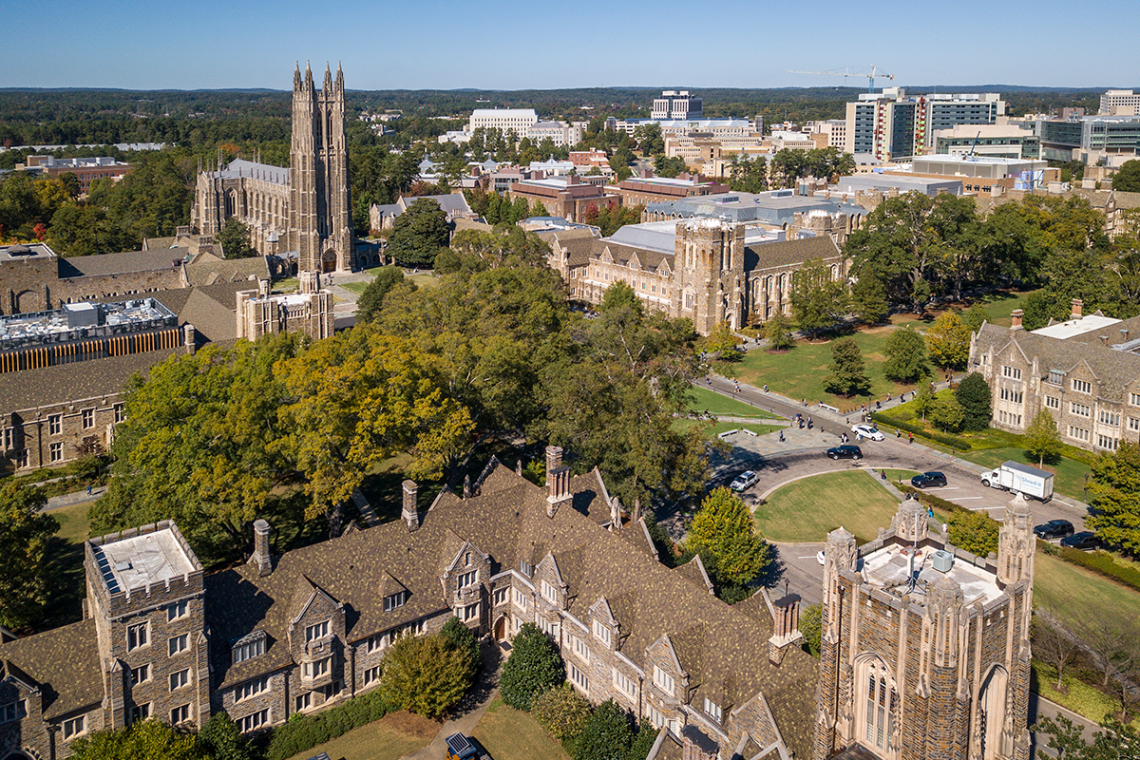
Dear Colleagues,
What sets Duke apart are our people and our purpose, and both have been tested over these past few weeks. We have all lived through what for many has been the most tumultuous and unsettling period of our lives. The combination of understandable concern for our health and safety, and those of our loved ones, with massive disruptions to society, education, business and even our ability freely move around our communities, is deeply unsettling.
But we have as a Duke community met these unprecedented challenges with an extraordinary outpouring of creativity, commitment and courage from thousands of people spanning the globe. Each of you has contributed in your own way, through actions that have saved lives, supported our students, faculty, staff and patients, and ensured that our important work continues despite the challenges we confront every day. Many of you have done so while balancing health concerns, caring for family members, and navigating the mental and emotional challenges of an uncertain and isolating time.
Your extraordinary effort brings home the truth that we can only do great works through great people, and that ensuring the well-being of our people is critical to our purpose of seeking knowledge in the service of society.
Even as we confront present challenges, we must be clear that the pandemic will also produce profound and lasting effects, including severe and negative effects on our operations and finances. Duke is not alone in this, of course: every business, government, nonprofit organization and family is now making difficult choices. While it is too soon to determine with precision the magnitude of disruption to our finances, it is clear that the impacts will be both severe and prolonged. All of our formerly reliable sources of revenue – tuition, research grants, clinical revenue, private philanthropy and income from our investments and endowment – will almost certainly be significantly and adversely affected, even as we face increased expenses in our education, research and patient-care services.
The responsible institutional course is to engage in a thoughtful, comprehensive, and strategic review of our operations and finances, and we are initiating exactly that. In the meantime, we must also act responsibly now by taking immediate steps to mitigate our deepening financial challenges. As a result, we are today either confirming (in the case of actions that were announced earlier) or implementing the following Duke University policies, which do not apply to the Duke University Health System:
Expenditures: All schools, units, departments and programs will need to pause new non-salary expenditures, including (but not limited to): contracts, service or consulting agreements; computer, office and laboratory equipment; renovations; furniture; travel and entertainment; meetings and conferences. Any ongoing expenditure of university funds (including grant, gift and endowment funds) greater than $2,500 will continue to require pre-approval by the Executive Vice President, Provost or Chancellor for Health Affairs or their designees. There will be additional guidance forthcoming regarding information technology services, including software licenses.
Hiring: All staff hiring is paused until further notice. Requests for exceptions for positions that are essential to the operation of the university can be made through the vacancy management process, which requires the approval of the Executive Vice President, Provost or Chancellor for Health Affairs, depending on the unit. Subject to the approval of the appropriate dean, ongoing faculty searches may continue provided that all salary and startup funds are identified. Likewise, searches for staff positions that are fully funded by external research grants that have already been received by the university may continue, subject to review through the vacancy management process.
Salaries: For the fiscal year beginning July 1, 2020, there will be no salary increase for University employees making more than $50,000 per year. Employees earning up to $50,000 who earn satisfactory performance evaluations will receive a one-time, $1,000 payment. The only exceptions to this policy will be certain academic promotions. Positions covered under collective bargaining agreements will be governed by the terms of the contract. This action also does not cover Duke University Health System (DUHS) employees. DUHS administers compensation on a different calendar from the University, and guidance for the next year will be provided to DUHS employees at a later date.
Benefits: At this time, we do not anticipate making any changes in our insurance programs (health, dental, vision and disability). We are reviewing our 403b program to determine whether adjustments are now appropriate.
Construction: All new construction projects are on indefinite hold, except those related to safety, repairs, infrastructure, virus research and a small number of obligations to new faculty.
As we adapt to this new reality, I pledge to you that Duke will never lose sight of our highest commitments, to our people and our purpose. We remain firmly committed to meeting the financial aid needs of our students, which are likely to rise. Our decisions will be guided by and aligned with Duke’s overarching strategic framework, Toward our Second Century. We will be mindful of the needs of the most vulnerable among us and committed to the health, safety and security of our students, faculty and staff. And we will be true to our shared values of respect, trust, inclusion, discovery and excellence.
We will get through this, together, by supporting one another and our shared mission as a university. Thank you for all that you are doing for Duke. I am proud to call you colleagues.
Sincerely,
Vincent E. Price
President
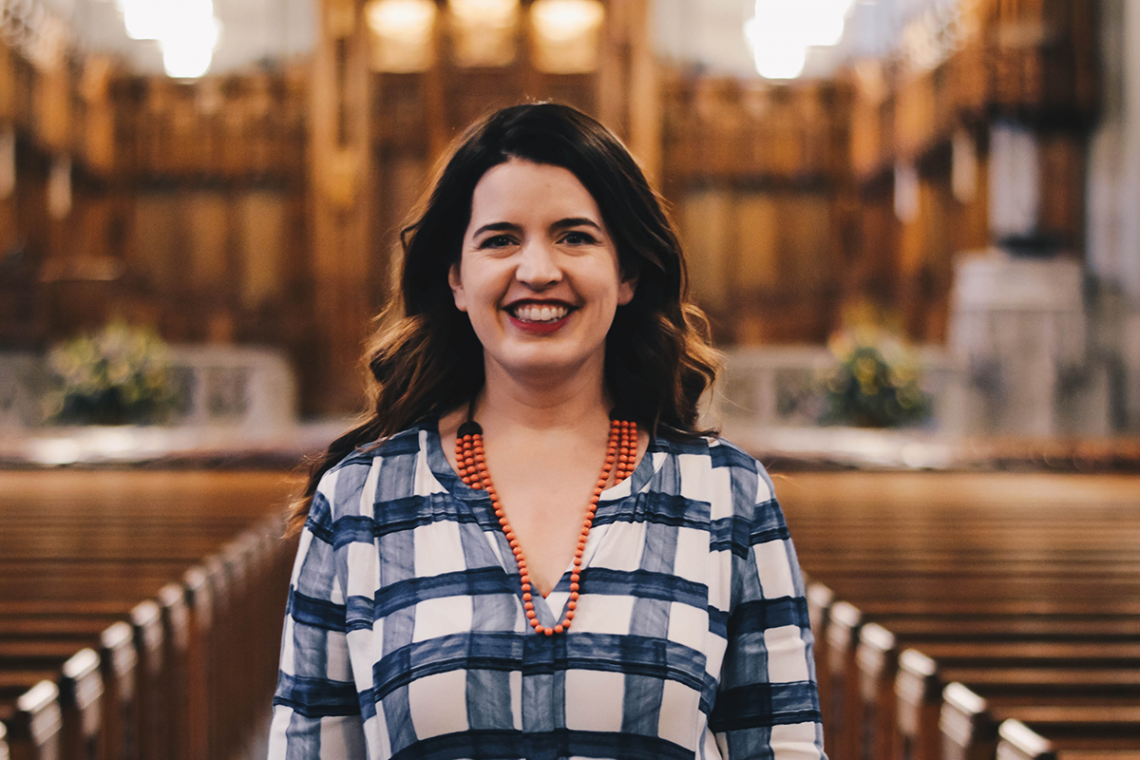
On Monday, March 23, Duke University resumed the academic year after extending spring break for a week and suspending all on-site classes due to COVID-19. More than 6,000 classes transitioned to remote instruction as faculty and students found new ways to connect, teach and learn. Here are a few of interesting numbers in the first week of remote learning.

